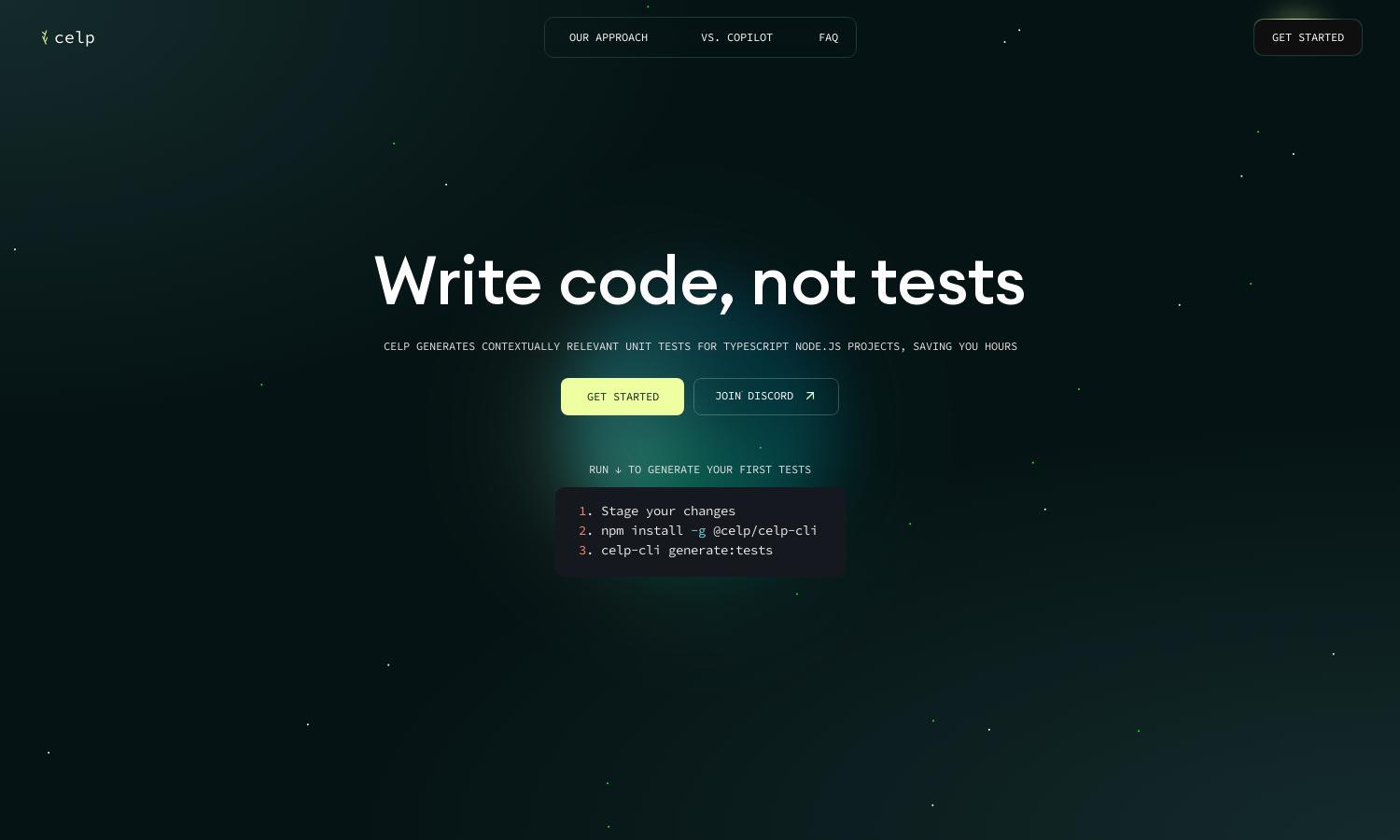Celp

About Celp
Celp is an innovative platform for developers, leveraging AI to intelligently generate unit tests for Typescript Node.js projects. By thoroughly understanding your codebase, Celp provides a unique capacity for achieving complete test coverage while saving development time and ensuring robust code performance.
Celp offers flexible pricing tiers tailored to various project sizes and developer needs, ensuring value at each level. Users can benefit from a free trial to explore features and consider premium plans for enhanced capabilities, making it accessible for individual developers and teams alike.
The user interface of Celp is designed for ease of navigation, providing a clean layout that enhances the testing experience. With intuitive controls and helpful features, users can quickly access essential tools to manage their unit tests efficiently, ensuring an optimal workflow throughout the testing process.
How Celp works
Users interact with Celp by signing up and onboarding, where they input their Typescript Node.js project details. The platform analyzes the codebase using abstract syntax trees, generating relevant unit tests with contextual insights. Users can review the tests generated, execute them, and receive real-time feedback, enhancing overall coding accuracy and efficiency.
Key Features for Celp
Contextual Code Understanding
Celp's contextual code understanding feature enables it to deeply analyze your codebase, ensuring highly relevant unit tests are generated. This unique aspect allows users to achieve complete code coverage, ultimately saving time and improving overall code stability, setting Celp apart in the market.
Agentic Design
The agentic design of Celp intelligently parses code and adapts its testing strategies, leading to effective and efficient unit test generation tailored to user projects. This capability empowers developers to enhance their testing workflows by focusing solely on the most pertinent aspects of their code.
Automated Test Diagnosis
Celp features automated test diagnosis, allowing it to run unit tests iteratively while diagnosing and resolving any errors. This unique functionality provides developers with valuable insights into their code, enhancing their ability to maintain high-quality standards effortlessly while minimizing manual intervention.








